9/5/2024
Seminario: «Introducción a las cinematografías asiáticas (Japón, Corea y China)»
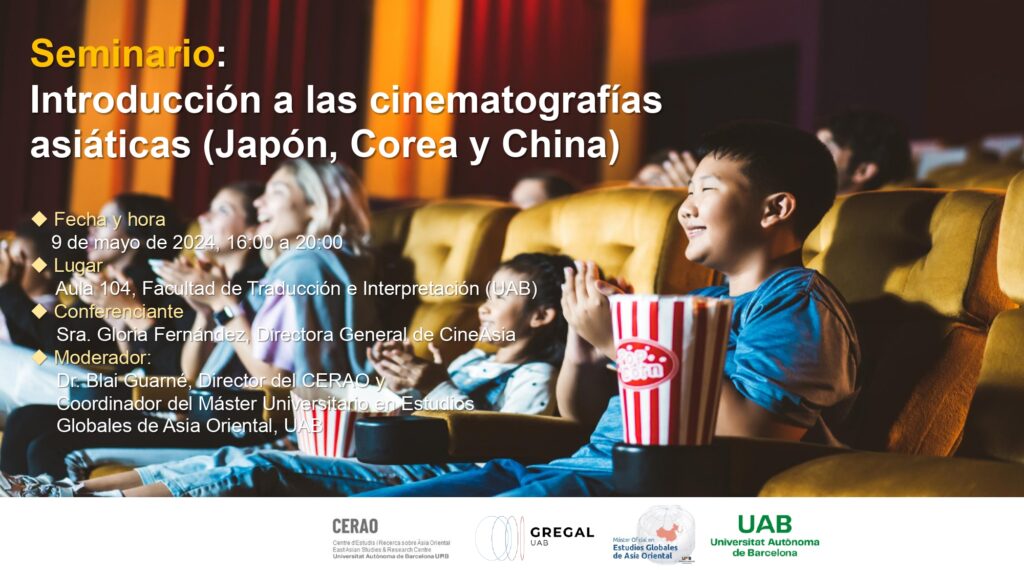
Sra. Gloria Fernández (CineAsia)
16/11/2023
Mesa redonda: «Corea y el mundo hispanoparlante: contactos académicos, culturales y humanos»
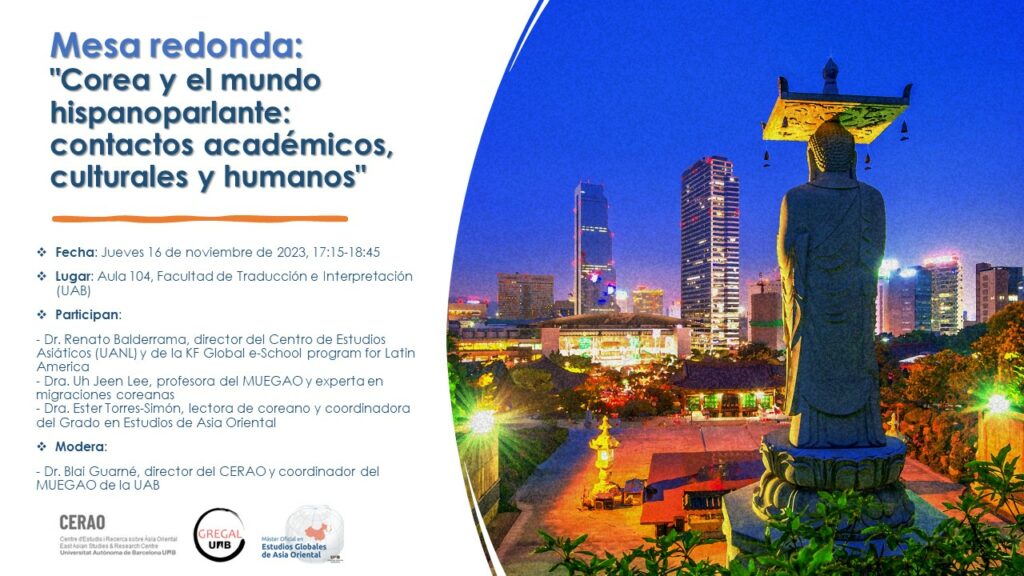
Dr. Renato Balderrama (Universidad Autónoma de Nuevo León) / Dra. Uh Jeen Lee (UAB) / Dra. Ester Torres (UAB)
15/6/2023
Webinar «Conflictos ambientales y geopolítica: China y Japón en las negociaciones sobre cambio climático»
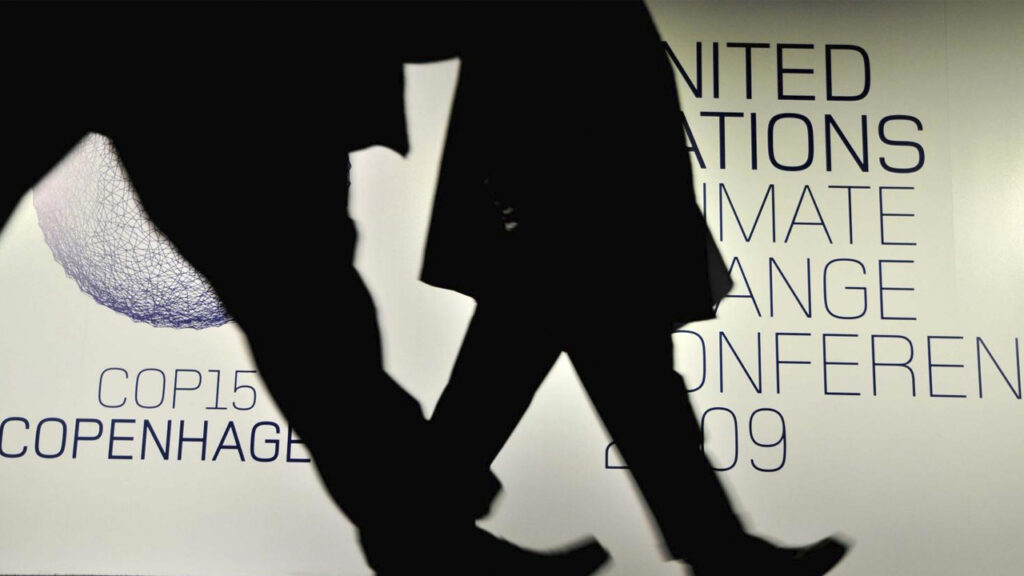
Prof. Pablo Gavirati Miyashiro (Universidad de Buenos Aires)
22/05/2023
“Asia del Pacífico y las consecuencias de la emergencia sanitaria”
Prof. Juan José Ramírez Bonilla (Colegio de México)
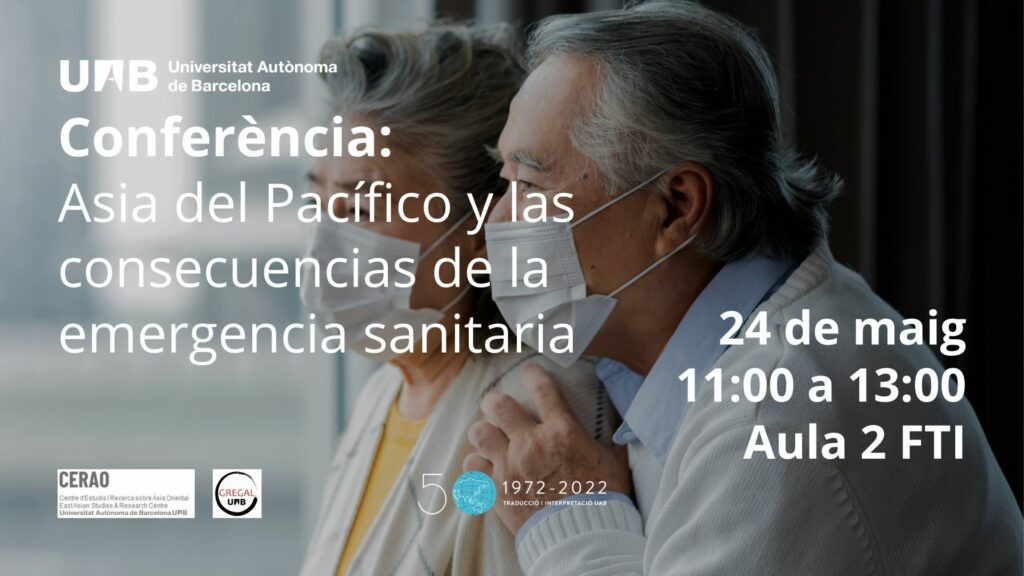
22/05/2023
“Asia del Pacífico y la pandemia de la Covid-19”
Prof. Juan José Ramírez Bonilla (Colegio de México)
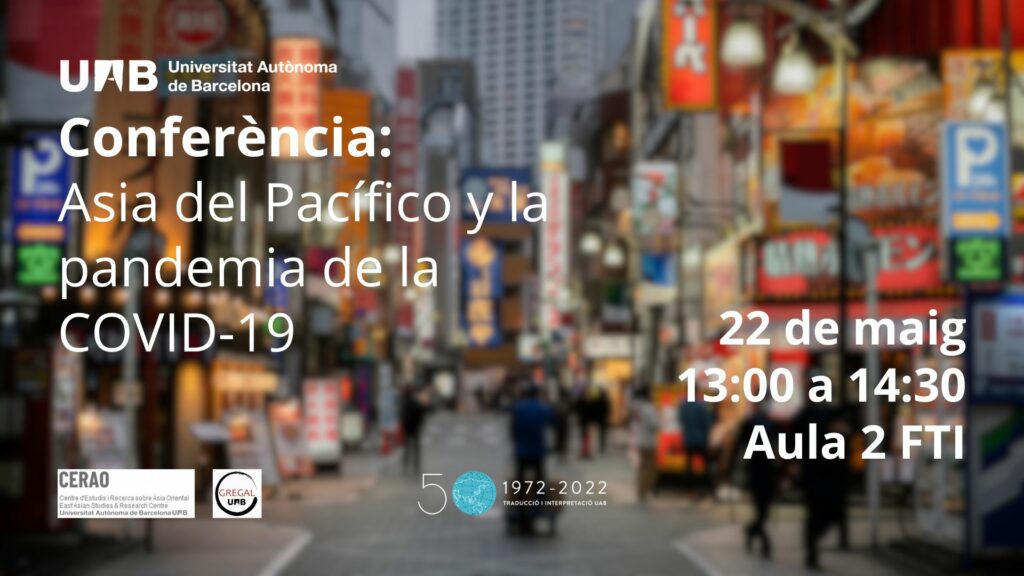
18/5/2023
Webinar: «El medio ambiente y los límites del éxito económico de China»
Profª. Yolanda Trápaga Delfín (Universidad Nacional Autónoma de México)

8/05/2023
“The most intelligent writing system”: Roman, Chinese, Japanese, Korean?
Prof. Florian Coulmas (Universität Duisburg-Essen)
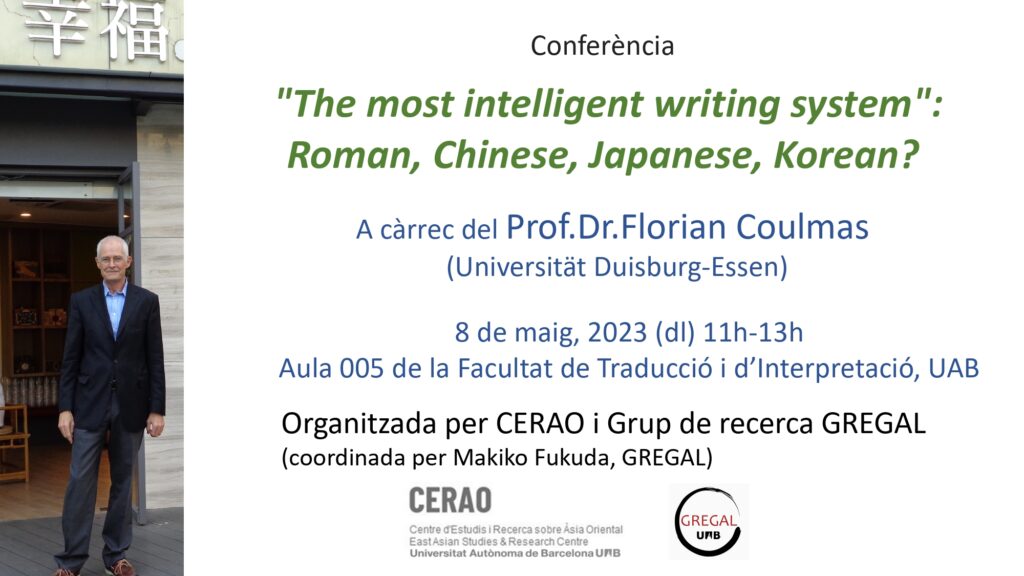
25/4/2023
Webinar «Género y cine japonés: construyendo la figura de la directora de cine»
Profª. Irene González-López (University of London)
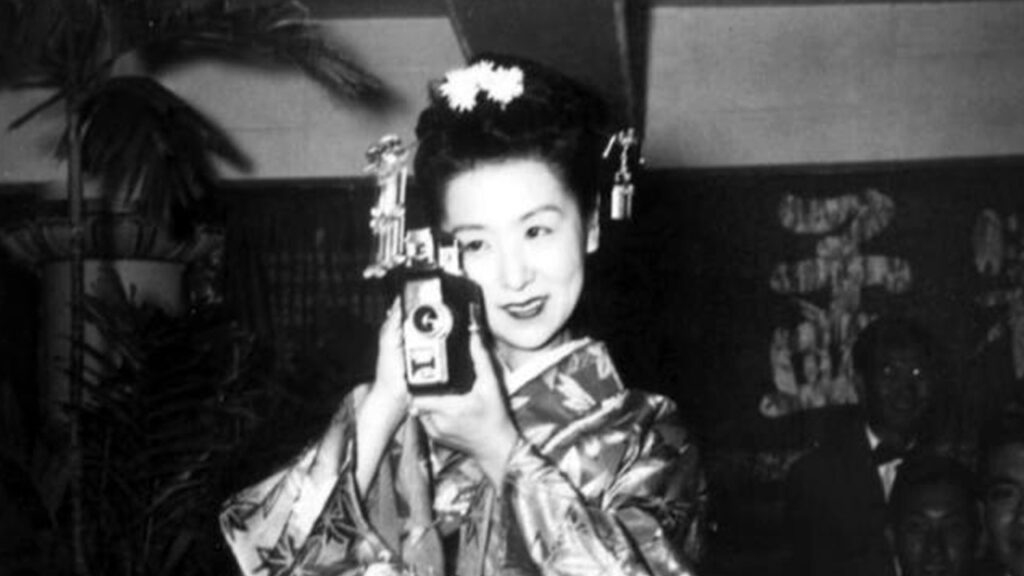
29/3/2023
Webinar: «China y la geopolítica del siglo XXI»
Prof. Ferran Pérez-Mena (Durham University)

23/3/2023
Webinar: «Corea en el nuevo sistema de relaciones internacionales»
Prof. Juan José Ramírez Bonilla (Colegio de México)

2-6/2023
III Ciclo de conferencias: «Estudios Globales de Asia Oriental», GREGAL – CASA ASIA
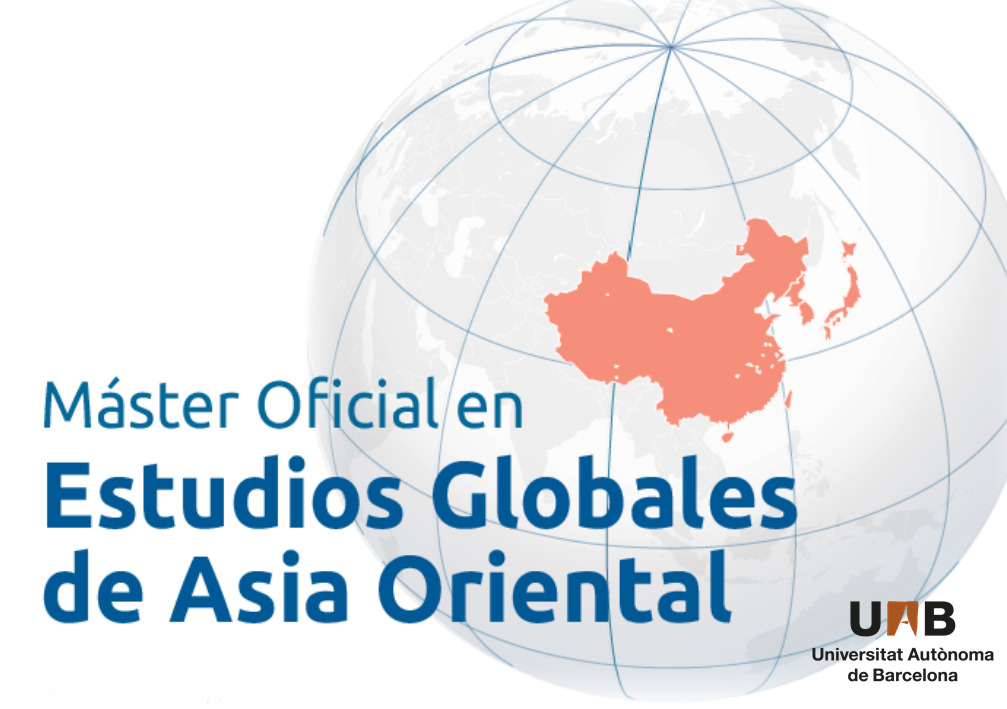
22/12/2022
“La Sociedad Japonesa en la Encrucijada: Los Retos de la Era Reiwa”
Dr. Alejandro Carlos Uscanga Prieto (Universidad Nacional Autónoma de México)
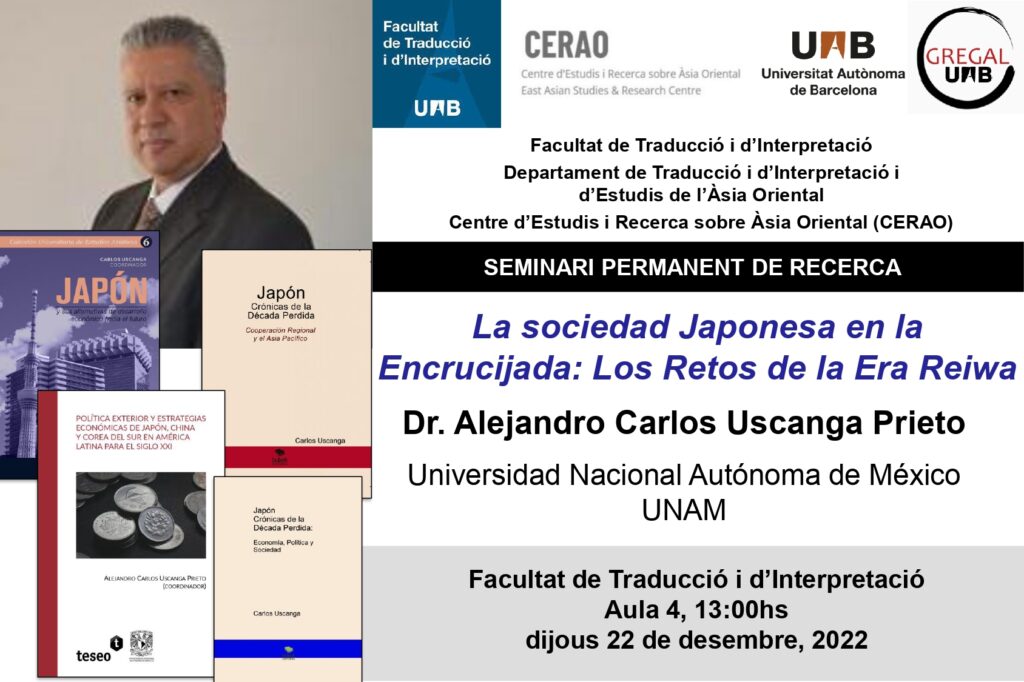
16/6/2022
Webinar «Las relaciones de la Unión Europea con China y Japón: retos ante un contexto geopolítico en rápida transformación»
Prof. Just Castillo Iglesias (UAB)

2/6/2022
Webinar «Sinofuturismos: imaginarios de ciencia ficción y nuevas tecnologías en la reciente producción artística en China»
Prof. Roberto Figliulo (UAB)

19/5/2022
Webinar «Literatura coreana en España: ¿actor secundario de BTS, Solo Leveling y el Juego del Calamar?»
Profª. Ester Torres Simón (UAB)

2/5/2022
Webinar «El imaginario japonés a través de los videojuegos de rol: fantasías digitales y misiones virtuales»
Prof. Tomás Grau de Pablo (UAB)

2-6/2022
II Ciclo de conferencias: «Estudios Globales de Asia Oriental», GREGAL – CASA ASIA

01/07/2021
Webcast ≪La gobernanza global, un ‘tropel de Gs’ y Japón≫
Dr. Hugo Dobson (University of Sheffield)

27/05/2021
Webcast «Remaking Kurosawa: scaling up ‘Kakushi-toride no san-akunin’ (The hidden fortress)»
Prof. Dolores P. Martínez (SOAS & University of Oxford)

26/05/2021
“The International K-Pop Fandom and Fandom Lexicon: A Fieldwork in Barcelona”
Brittany Khedun-Burgoine (University of Oxford)
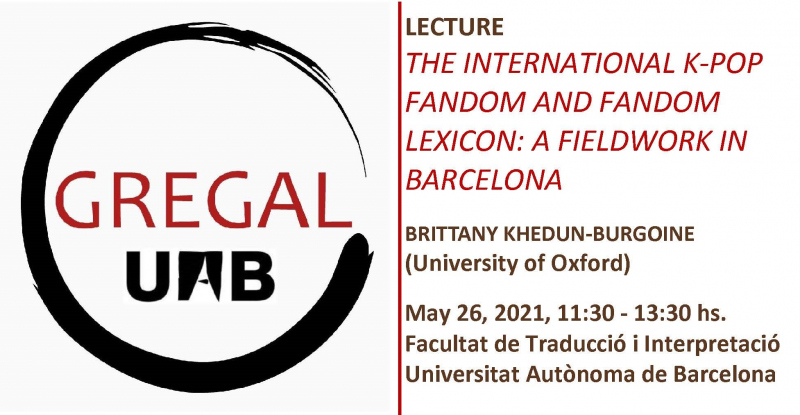
08/04/2021
Webcast “Culture in an Evolving World: The International Popularity of K-pop and its Core Message”
Prof. Jimmyn Parc (Sciences Po Paris & Seoul National University)

18/03/2021
Webcast: “Climate Change, Energy and East Asia”
Prof. Christopher M. Dent (Edge Hill University)

10/03/2021, 17/03/2021
“Retos Epistemológicos y Metodológicos en la Investigación en Contextos de Interculturalidad: China y Japón desde los Márgenes”
Dr. Eduardo González de la Fuente (GREGAL, UAB) & Dr. Aran Romero Moreno (MIRAS, UAB)
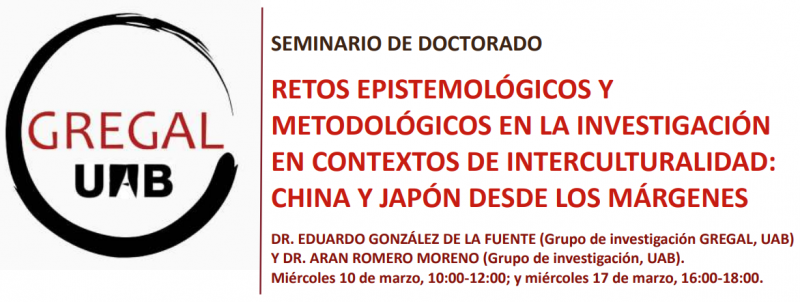
2-6/2021
I Ciclo de conferencias: «Estudios Globales de Asia Oriental», GREGAL – CASA ASIA

18/12/2019
“Narratives nacionals del Japó: literatura, discurs i hegemonia”
Dr. Jordi Serrano-Muñoz (Universitat Pompeu Fabra; Centro de Estudios de Asia y África del Colegio de México)
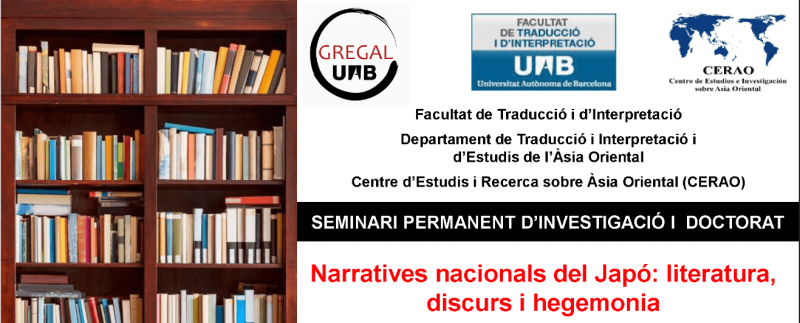
11-12/2019
“Història de Corea: des dels inicis fins a l’actualitat”
Dr. Sang Woo Han
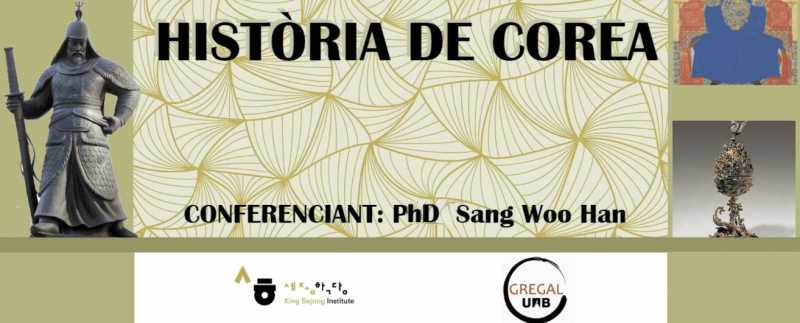
15/10/2019
“El Brexit y Asia: ¿De vuelta a un futuro de finales del siglo XIX?”
Prof. Christopher Dent (Edge Hill University)

14/10/2019
“Asia and Climate Action: Putting the Dragon Back in the Box?”
Prof. Christopher Dent (Edge Hill University)

24/09/2019
“Antropología de Japón. Identidad, discurso y representación”
Dr. Blai Guarné (Universitat Autònoma de Barcelona) & Dr. Carles Prado-Fonts (Universitat Oberta de Catalunya)
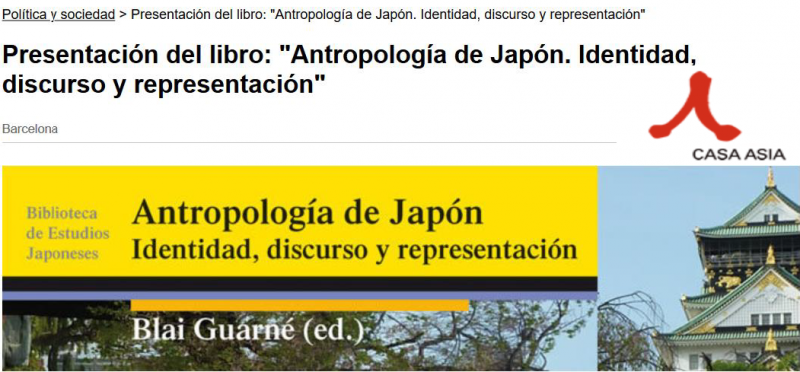
28/02/2019
“El Tennô: pasado, presente y futuro de la monarquía japonesa”
Prof. Salvador Rodríguez Artacho (UNED)
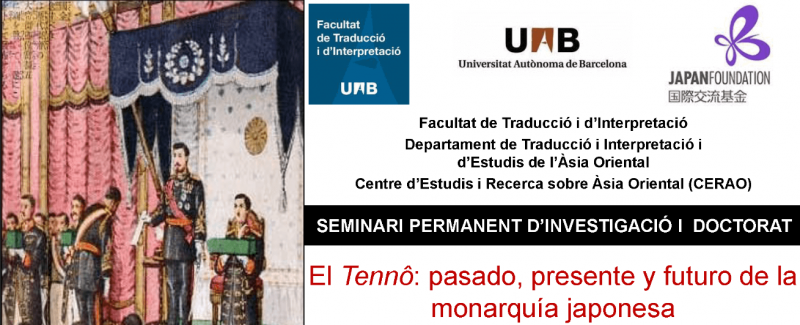
20/02/2019
“UNITED RED ARMY”, Wakamatsu Kôji (2008)
Ferran de Vargas (GREGAL, UAB)
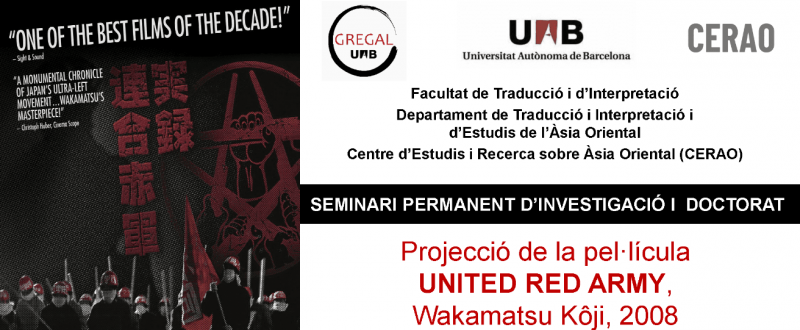
07/11/2018
“Presentación del proyecto Talento J“
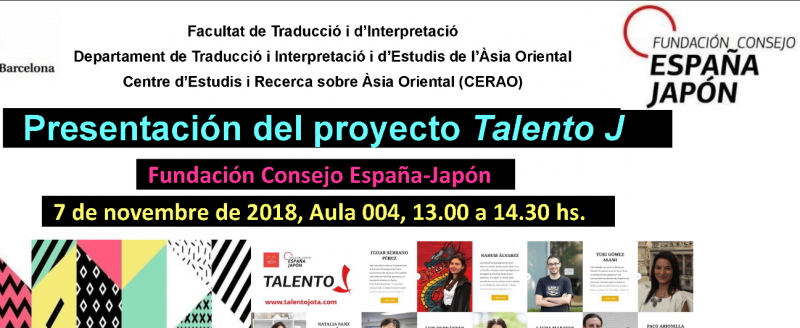
08/05/2018
“The Way of the Carpenter: Tools and Japanese Architecture”
Prof. William H. Coaldrake (University of Tokyo)
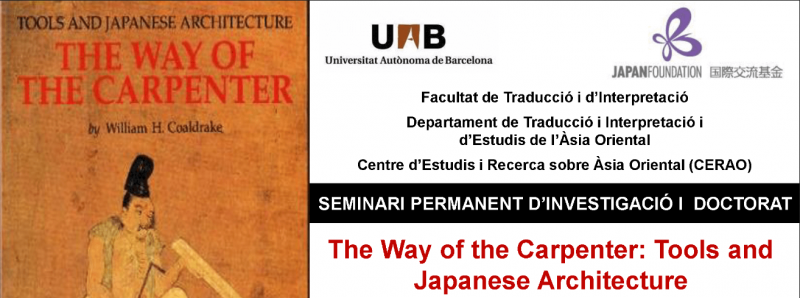
08/05/2018
“Us & Them: Korean Indie Rock in a K-Pop World“
Stephen Epstein (Victoria University of Wellington, New Zealand) & Timothy Tangherlini
